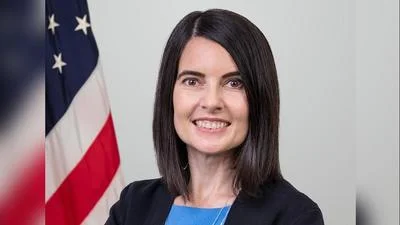Attorney General Anthony G. Brown | Official U.S. House Headshot
Attorney General Anthony G. Brown | Official U.S. House Headshot
BALTIMORE, MD – Maryland Attorney General Anthony G. Brown has announced joining a coalition of state Attorneys General calling on the Federal Communications Commission (FCC) to clarify the federal rules requiring telemarketers to obtain consent between an individual consumer and one specific seller or business entity before making telemarketing robocalls and texts.
The comment letter was filed on June 6 in response to an FCC notice of proposed rulemaking. In the notice, the FCC sought comment on a proposed amendment to its rule concerning prior express written consent under the Telephone Consumer Protection Act (TCPA), as well as proposals to strengthen protections against illegal text messages. In their letter, the coalition of Attorneys General expressed support for a rule adopted by the FCC in March 2023 that formally clarified that National Do Not Call Registry protections apply to text messages and expressed support for additional proposals to fight robotexts. However, the coalition voiced concern that the FCC’s new proposed language to the rule addressing consumer consent might make it easier for consumers to be tricked into consenting to unwanted robocalls and robotexts.
“Unwanted robocalls and robotexts are dialing up real stress for real people,” said Attorney General Brown. “We urge the FCC to clarify the rules and protect Marylanders’ ability to choose who gets to contact them and how. I am committed to making sure Marylanders are empowered to take control and silence the unwanted noise.”
The FCC is proposing to amend its rule concerning consent to close a so-called “lead generator loophole.” Lead generators are entities that collect personal information (like telephone numbers) from consumers and sell it to third parties, who then use that information to solicit consumers to purchase goods or services. A common lead generation practice is to offer the consumer a quote for a good or service online but, to actually receive the quote, require that the consumer agree to receive calls and/or texts from the lead generator’s marketing partners. These partners often include thousands of different businesses offering numerous different goods or services. If these separate businesses are identified anywhere, it is usually on a separate webpage only accessible via a hyperlink.
The FCC’s proposed amendment adds language to the existing rule to allow a consumer to consent to robocalls and texts from multiple entities, provided the entities are “logically and topically associated”
Original source can be found here.


 Alerts Sign-up
Alerts Sign-up